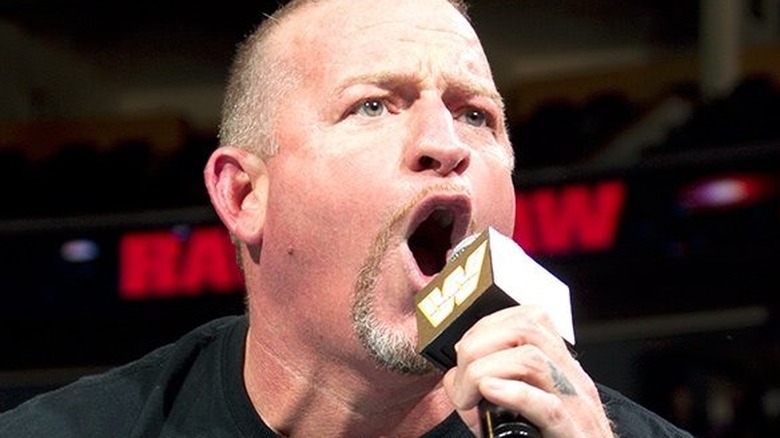WWE Legend Road Dogg On When The Hardcore Championship Went Downhill
The latest episode of Brian "Road Dogg" James' podcast, "Oh, You Didn't Know?," covers the WWE veteran's run with the infamous Hardcore Championship. Over the course of the conversation, James was able to pinpoint one decision as the beginning of the end for the title.
"Now we've gone too far," James said of the switch to anyone having the ability to challenge for the Hardcore Championship 24 hours a day, seven days a week. "It totally lost its luster. ... When they went away from the violence of it is when it went away, you know what I mean? That's what it was. And look — from a business standpoint, especially now that it's a publicly-traded company, it's just crazy to have too much of that going on all the time, you know what I mean?" James went on to talk about how it became important for WWE to limit the amount of gratuitous violence on TV, as well as finding the right place to use hardcore stipulations for the greatest effect.
"I totally could make the argument [not normalizing] the hardcore stuff for corporate responsibility reasons," James continued. "Also, you know, people ain't going to pay for that all the time. And I think some people will, and there will be a spot for it, and it'll utilize it at the right times, and it'll mean something then."
James held the Hardcore Championship from December of 1998, when he defeated the Big Boss Man for the title, into February of 1999. During his reign, James defended the belt against performers like Mick "Mankind" Foley, and Gangrel before having to vacate the championship due to injury.
In addition to his lengthy run as a performer for WWE, James has worked behind the scenes as a producer — a position he still currently holds. Though he was briefly let go from the company in 2022, he was brought back on shortly after to become Senior Vice President of Live Events. As the company's live event schedule winds down from what it used to be, James elaborated on his current role backstage late last year, stating that he primarily helped make sure live events matched up with the creative plan for TV.
If you use any of the quotes in this article, please credit "Oh, You Didn't Know?" with a h/t to Wrestling Inc. for the transcription.
